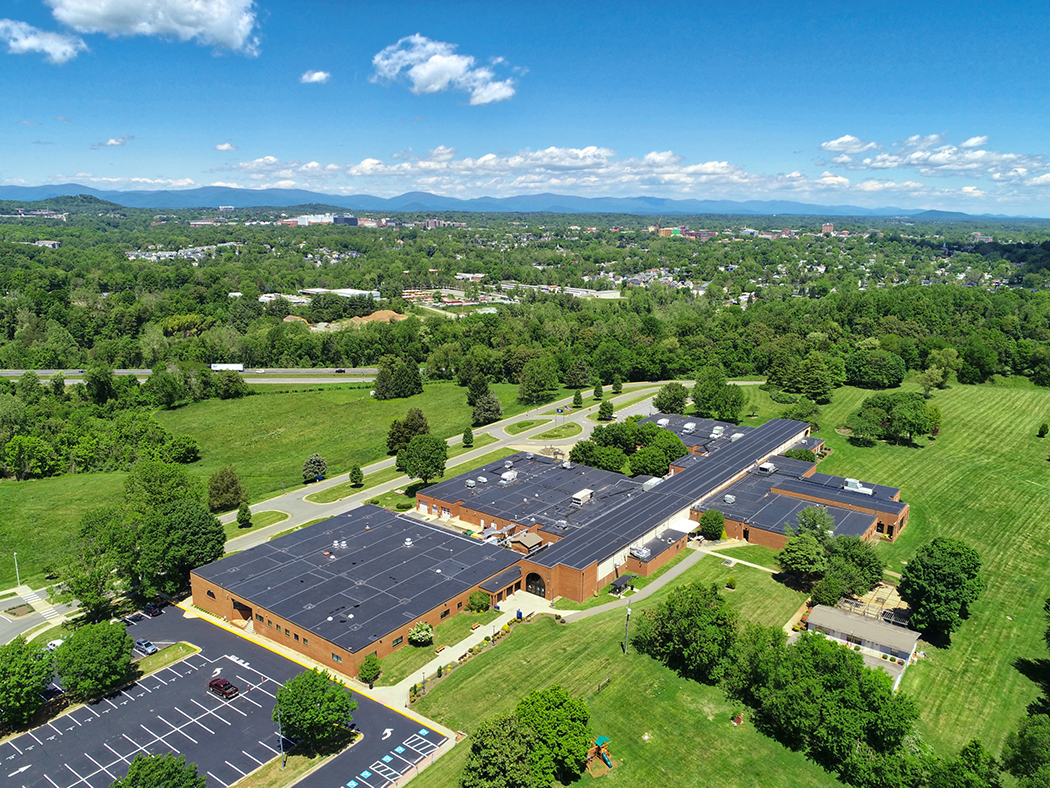While the daily decrease in coronavirus infections offers a light at the end of the tunnel, the nation’s economy continues to struggle to recover from the ongoing pandemic. Millions of Americans remain unemployed, including over 60,000 Virginia residents. Now more than ever, many are looking to start a new job or career, but may not have the right skills or education to get their foot in the door.
For people who want to return to school—or go for the first time—cost in the Charlottesville area no longer has to be a barrier. Piedmont Virginia Community College is offering free tuition and fees for the majority of its students during the 2021-2022 school year.
“There are a lot of people out there in central Virginia that are saying to themselves, ‘What am I going to do next? What’s my next job [or] career?’” says PVCC President Frank Friedman. “They need to get a new skill set and prepare themselves for the future, but don’t have the money to enroll.”
“That’s when we sat down and said, ‘What can we do to help those people?’” he says. “How can we make PVCC even more affordable?”
The new program, dubbed PVCC.4u, is open to all Virginia residents who make less than $100,000 a year, or who were laid off or furloughed due to the pandemic. To get the free ride, students need to fill out a financial aid application and enroll in at least six credit hours this fall.
Those who earn a 2.0 GPA or higher will have their spring tuition and fees covered too, saving students up to $5,000 in total.
Since the pandemic hit, PVCC students have largely been learning over Zoom. Last fall, the school allowed a small portion of its courses to begin safely meeting face-to-face, but with only a handful students in the classroom at a time.
“Those are classes that require labs, are studio art classes, or are hands-on types of classes, where you have to interact with the equipment,” says Friedman. “Try learning to be a welder online!”
But thanks to Virginia’s successful vaccine rollout, the school plans to completely “return to normal” this fall, Friedman says. All classes will be offered in-person (with masks required), along with the typical online-only courses.
[Online learning] was very convenient for students, especially those who are parents raising kids.
Frank Friedman, President of PVCC
However, he anticipates a slight increase in online offerings at PVCC. Pre-COVID, nearly a quarter of the school’s courses were already taught online, making the transition to all-virtual learning a bit easier.
“Some faculty who had not taught online before but then had to during the pandemic, they realized it was a good mode of instruction,” says Friedman. “Their students were doing well in the course, and it was very convenient for students, especially those who are parents raising kids.”
Typically when unemployment rates go up, more people enroll in community colleges. But over the past year, enrollment has decreased by about 6 percent at PVCC, which currently has around 5,000 students enrolled in credit courses. Another 3,000 are enrolled in non-credit workforce training programs.
“People didn’t know how long [the pandemic] would last, what its impact would be, what jobs would exist or not exist,” says Friedman, explaining the drop in enrollment. “And people just didn’t have money.”
To help more Virginians get back to work, the General Assembly recently passed the Get Skilled, Get a Job, Give Back initiative, which will cover state community college tuition, fees, and books for low- and middle-income students pursuing high-demand careers, including health care, information technology, manufacturing, public safety, and early childhood education. The program, which goes into effect this fall, will also provide financial assistance for necessary expenses like food, child care, and transportation.
“[G3] does not cover our students who are in what we call our transfer programs, which lead to a bachelor’s degree,” says Friedman. “That’s over 60 percent of our students.”
Thanks to stimulus money from the American Rescue Plan—combined with Pell grants, state funds, and community donations—PVCC is now able to waive tuition and fees for all students not covered by the G3 program.
While G3 has no expiration date, PVCC.4u will end after next spring. But Friedman remains hopeful the program can become permanent, pointing to President Joe Biden’s plan to make community college free nationwide.
“There is an opportunity here for Congress to act,” says Friedman. “We are very hopeful that they will.”
